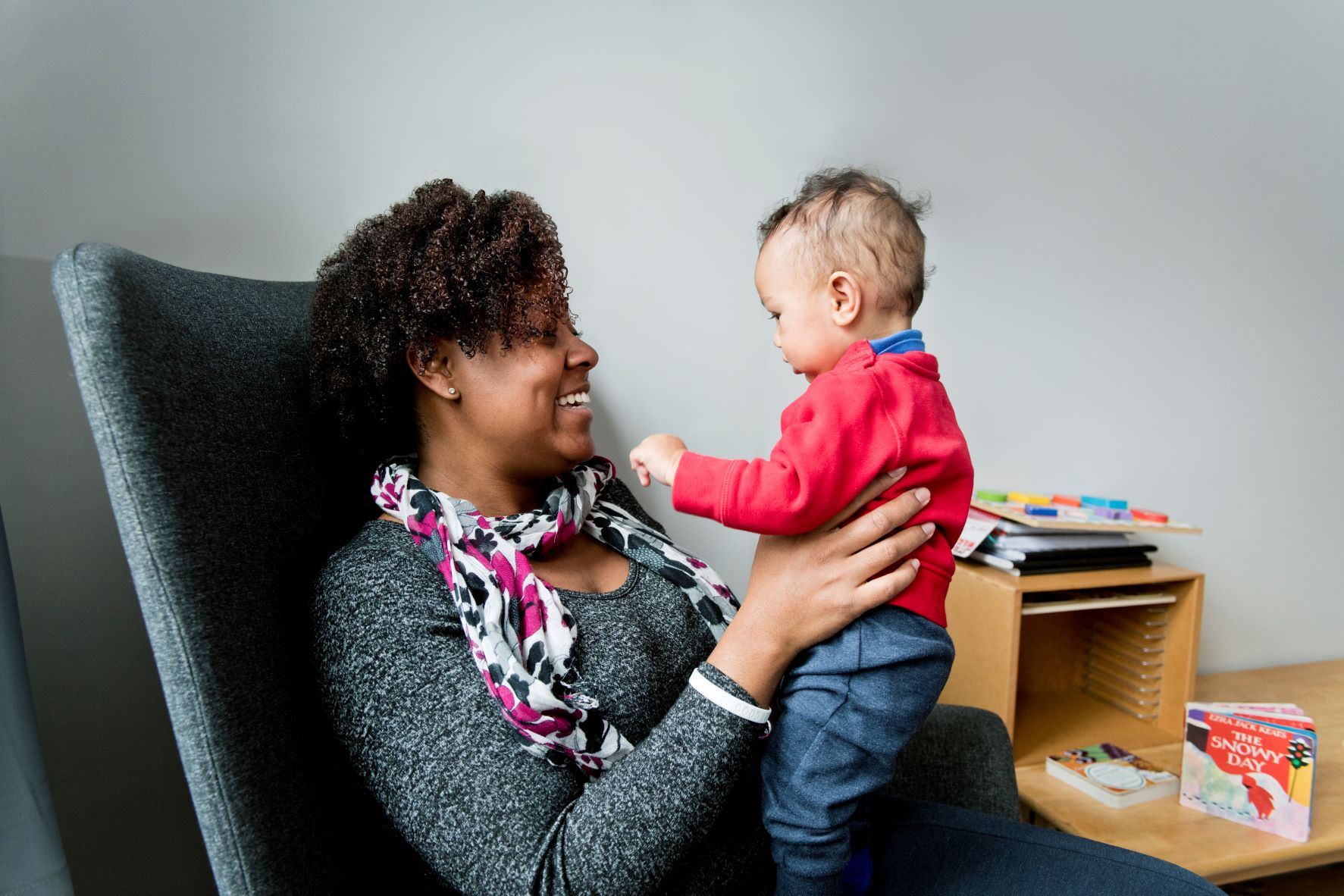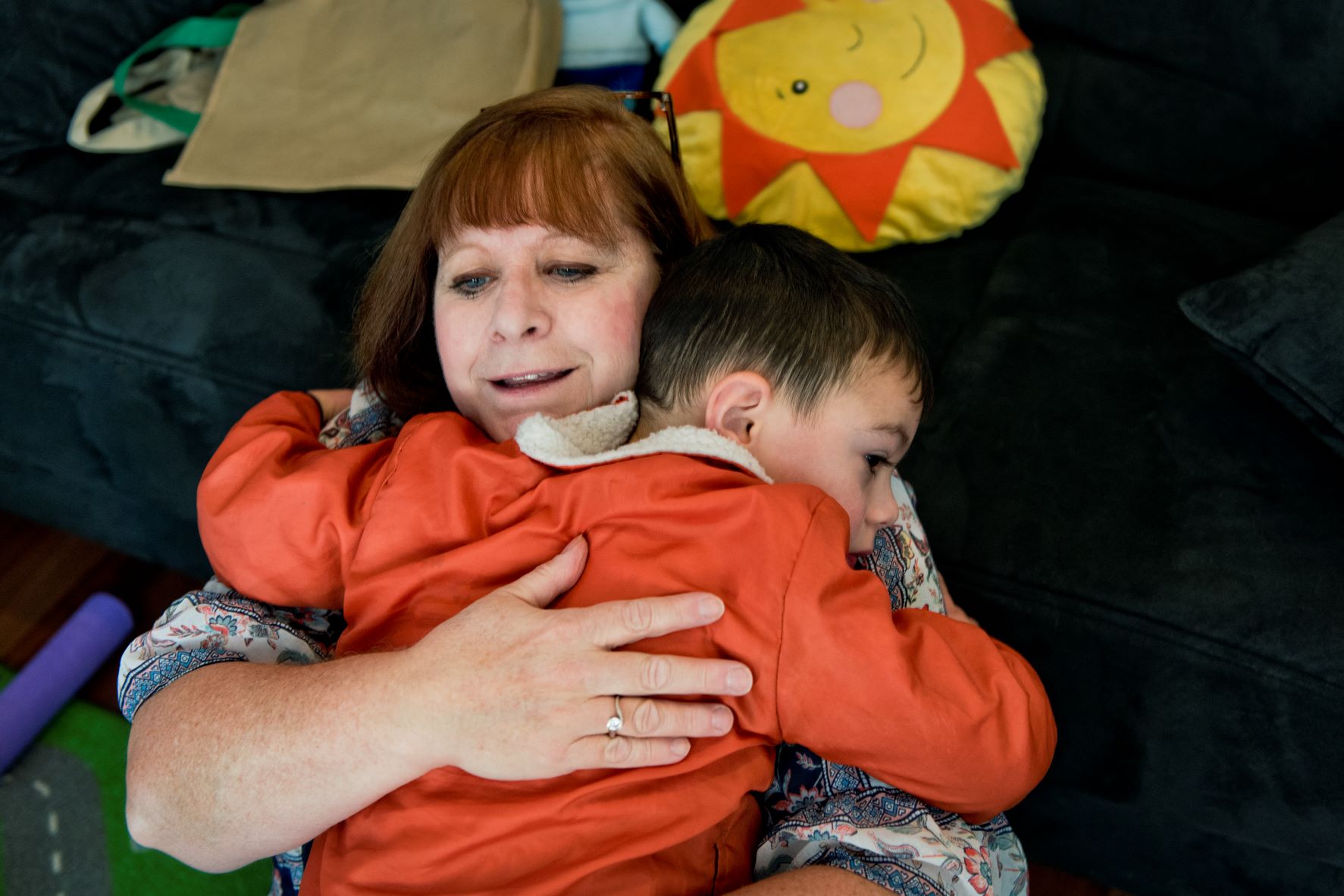United States 
How Home-Based Child Care Providers are Strengthening a Growing Movement for Change
What We're Learning: All Our Kin and Home Grown

United States 
What We're Learning: All Our Kin and Home Grown

The recently passed Inflation Reduction Act omits what many have noted is among the top expenses families in the United States face: child care. Despite federal inaction, the movement to realize transformative change in the US child care landscape is stronger now than it has been in at least five decades.
While more funders are stepping up to invest needed resources into systemic change on child care – and doing so with a more unified approach than before – the movement’s strengthening momentum comes not from its financial reserves, but from its intentional efforts to weave together separate threads that represent the many constituencies and provider types that make up our current child care landscape.
One area that is increasingly strengthening its place in a broader child care movement is the group of providers and educators that provide care in a home-based setting, with the most common type of care provided by friends, family, or neighbors. Home-based care has long been a lifeline to Black, Latinx, Indigenous, and rural families, who have either had more limited access to center-based care due to affordability or distance, or have simply preferred a home-based care arrangement. Although nearly one in three children in the United States are cared for in home-based child care settings, the needs of home-based providers and the many families they support have too often been excluded from conversations on solutions to the child care crisis.
Imaginable Futures initially invested in Home Grown and All Our Kin out of a recognition that systemic change for our littlest learners will not be achieved if this large segment of the US child care fabric is not supported, uplifted, and recognized for the critical role it plays in providing so many American families with accessible, quality child care. Since then, as the pandemic catalyzed a renewed push to address the child care crisis, we’ve seen how the inclusion of home-based child care within the broader movement for child care has strengthened its case for change.

All Our Kin educator provides care in a home-based setting. Photo credits: Gabriela Herman for Imaginable Futures.
Home Grown, which launched as a collaborative among 10 initial funders including Imaginable Futures, focuses on ensuring that home-based providers are firmly connected to broader movements for child care and have the tools and resources to engage in advocacy (if they would like to do so). Home Grown, which has now grown to 16 funders, created the Leading from Home initiative, which recognizes the powerful potential of engaging providers and parents in policy change and supports providers’ leadership skills to influence policy and systems. Provider participants receive financial support, action planning, network building, and coaching. Home Grown focuses its resources on supporting existing local networks, like ECE on the Move, that have been organizing in their communities for years. With this additional support, home-based child care providers are making their voices heard on how child care policies affect them and the families they care for, ensuring that the conversation around needed solutions is more inclusive.
Given its sprawling nature and mix of formal and informal arrangements, many home-based providers feel disconnected from useful training, resources, and networks. All Our Kin (AOK) trains and supports family child care educators in navigating the licensing process, developing their business skills, and deepening their knowledge and practice as early childhood teachers. This attention and proximity to educators informs AOK’s broader policy and advocacy efforts, which has centered the voices and needs of caregivers, who are primarily Black and Latinx women. As home-based provider Katherine Lantingua told Vox, AOK’s dedicated support has made a difference: “When you’re completely lost, it’s like you have a backbone.” With AOK behind them, home-based providers have brought their stories and their demands directly into the halls of power, including Capitol Hill, reshaping the public conversation around quality child care to include the perspectives of home-based providers and the families they serve.
Both All Our Kin and Home Grown have shown how home-based child care providers are crucial to achieving systemic change in their communities. As a result of its on-the-ground work in New York and Connecticut, AOK’s educator-centered advocacy has helped secure key policy wins, including New York State’s $7 billion investment in child care and Connecticut’s infusion of $183 million into the state’s child care system.
Home Grown, meanwhile, helped inform legislative proposals in Minnesota that would ensure the inclusion of friend, family, and neighbor care providers in programs that aim to incentivize and retain infant toddler caregivers and partnered with local advocates in a community in Texas to successfully overturn a proposed local ordinance that would limit the ability of some home-based providers to get licenses.
By tapping the collective power, energy, and wisdom of home-based care providers, All Our Kin and Home Grown are adding more fuel to the child care movement’s momentum
These learnings have affirmed the belief underlying our initial investment – that improving access to quality child care for all children and families requires investments in a variety of providers, including home-based child care. We’re proud to invest in the continued and expanded work of All Our Kin and Home Grown, as they work to advance a more inclusive view of high-quality child care that respects and adequately compensates the essential work of home-based providers, while ensuring child care policies are equitably developed and implemented.
By tapping the collective power, energy, and wisdom of home-based care providers, All Our Kin and Home Grown are adding more fuel to the child care movement’s momentum, bringing a more equitable and transformative vision for child care closer to reality.